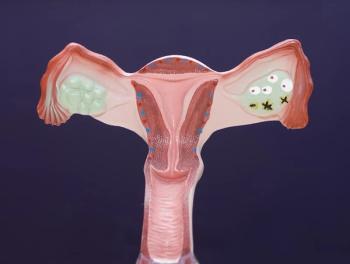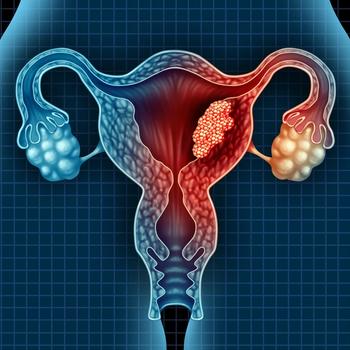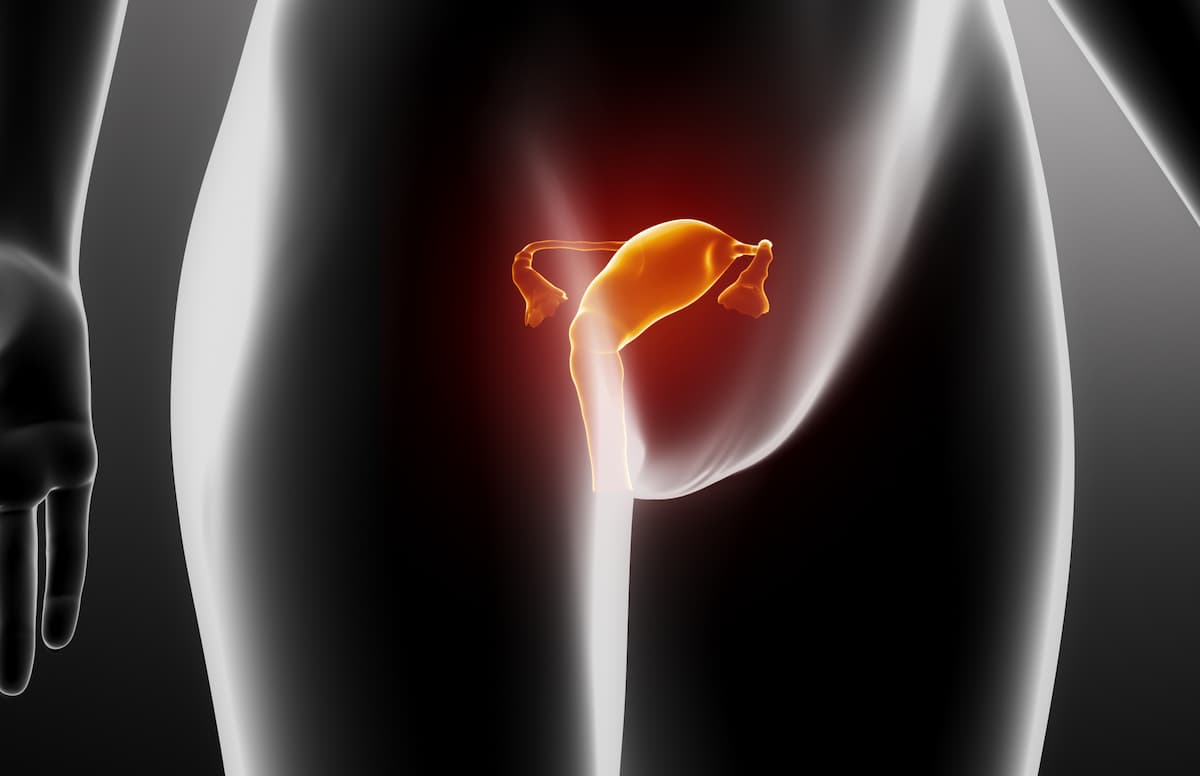
Gynecologic Cancers
Latest News
Video Series

Latest Videos
Podcasts
CME Content
More News

Fuzuloparib monotherapy and as a combination with apatinib improved PFS as maintenance therapy in patients with ovarian cancer harboring BRCA1/2 mutations.


Investigators noted 1 instance of rectovaginal fistula in the PEG gel arm, although rapid postoperative recovery occurred.

Although both immune priming strategies numerically improved ORR and PFS vs olaparib monotherapy, the study was not powered for comparisons between arms.

Deeper short-term declines in quality of life occurred when combining cisplatin with radiation for those with intermediate-risk cervical cancer.

Fertility-sparing surgery showed comparable efficacy vs hysterectomy in early-stage cervical cancer, with a 5-year RFS rate of 92% vs 96.4%, respectively.

The median PFS for patients with ovarian cancer who received niraparib maintenance in the real-world setting was 25.7 months.

The 3-year DFS rate was 96.9% in patients who received sentinel-lymph node biopsy alone vs 94.6% in those who received lymphadenectomy.


Although the study was underpowered due to a small sample size, nonsignificant improvements in functional and social well-being occurred with MOST-S26.

The Promega OncoMate MSI Dx Analysis System was previously approved to identify Lynch syndrome in patients with CRC.

Findings from 2 studies showed that onetime cell therapies can elicit complete tumor regression in patients with advanced epithelial cancers.

Phase 3 data demonstrate PD-L1 positivity and BRCA mutation status as prognostic for improved overall survival regardless of treatment arm.

The FDA decision is based on data from a pooled analysis of phase 1/2 study data from 2 trials evaluating the agent in advanced/metastatic PROC.

Granulosa cell tumors exhibit late recurrence and rare hepatic metastasis, emphasizing the need for lifelong surveillance in affected patients.


Grade 3 or 4 AEs were experienced by 42.9% of patients who received cisplatin plus radiation compared with 15.3% of patients who received radiation alone.

Approximately half of the patients who received raludotatug deruxtecan in the phase 2/3 REJOICE-Ovarian01 trial achieved an objective response.

The confirmed ORR in the investigational arm was 52.3% vs 46.6% in the chemotherapy arm, with respective complete response rates of 10.9% and 8.5%.

In terms of OS among patients with non-tBRCA–mutated, HRD-positive disease, the median value was not reached in either durvalumab arm.

Data from the ROSELLA trial show a consistent benefit with relacorilant plus nab-paclitaxel across PROC subgroups.

A significant survival improvement was observed among patients with dMMR carcinomas who received atezolizumab/chemotherapy.

Data from the NAPISTAR1-01 study showed enduring benefit with TUB-040 among those with platinum-resistant high-grade serous ovarian cancer.

Results from the phase 3 KEYNOTE-B96 trial showed favorable results with pembrolizumab-based therapy in this ovarian cancer population.

The safety profile of pembrolizumab plus chemotherapy with or without bevacizumab was consistent with that observed in previous studies.














































